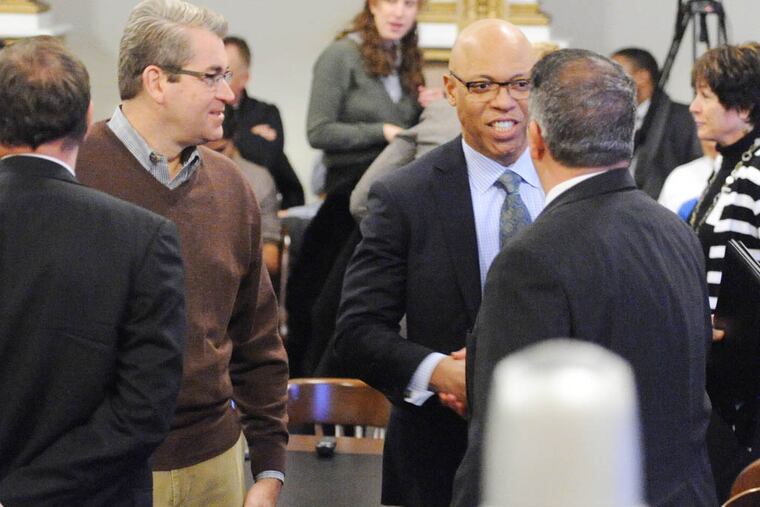DN Editorial: Formula for disaster
Each year Pennsylvania hands out $5.5 billion in subsidies for basic education that follows a formula which is outdated and ignores the realities of local school districts.

EACH YEAR Pennsylvania hands out $5.5 billion in subsidies for basic education that follows a formula which is outdated and ignores the realities of local school districts.
To use just one example: districts that have lost students in recent years get the same amount of state subsidy, even though they are educating fewer children. And don't even talk about making allowances for such factors as poverty.
In fact, in 2007, a "costing-out" study commissioned by the legislature concluded that the state's public schools were underfunded by $4.38 billion. The study further concluded that Philadelphia schools were underfunded by nearly $5,000 per student. Schools got a one-time boost following the study, but that increase was short-lived.
Fortunately, the current legislature recognizes the need to change the formula and created a bipartisan commission, with members from the legislature and the governor's office, to devise a new and improved formula.
Their recommendations are due in June, but commission members were in town last week to hear what Philadelphia officials and education advocates think. Mayor Nutter, School Reform Commission Chair Bill Green, Superintendent William Hite and education advocates made the case that the current formula does a disservice to the city's schools.
It's no secret that Philadelphia has been hit hard by cuts in state aid to education, but the root of our problem does not lie soley with the old formula. The main cause of the pain is the state's retreat from support of public schools during the Corbett administration.
Corbett's slash-and-burn first budget was officially done in the name of holding the line on taxes. What he really did was shift the burden of paying for the schools away from the state, putting it on local districts. Today, Pennsylvania ranks among the lowest in state aid to education.
Philadelphia is not the only district sent reeling by the cuts. The city and the suburb District's across the state have had to cut services, raise local taxes and often both to make up for the state walking away from its commitment to education.
Voter anger over education made Tom Corbett a one-term governor.
The problem won't be solved by a new formula. Changing how the pie is sliced - in effect, taking money from one district and giving it to another - simply won't fly politically. No legislator, regardless of party or region, wants to have to explain to constituents that local schools will be getting less because of a change in the formula.
What needs to be done, in order for the formula to work, is to increase the size of the pie. We need to put more money - a lot more money - into state aid to local districts. The burden of getting this done will soon fall on the shoulders of Tom Wolf. The governor elect has made it clear that increasing education funding is his priority and he is willing to raise taxes to do it.
It won't be easy. Corbett may be headed out the door but the legislature got more Republican and more conservative (and more anti-tax) in the last election. Because of decisions made in Harrisburg last year, the new governor will face a deficit in excess of $1 billion. He may have to raise taxes just to balance his first budget; forget about new spending on education or anything else.
By all means, change the formula to bring it in sync with modern times. But we can't forget that what districts really need is more state aid.